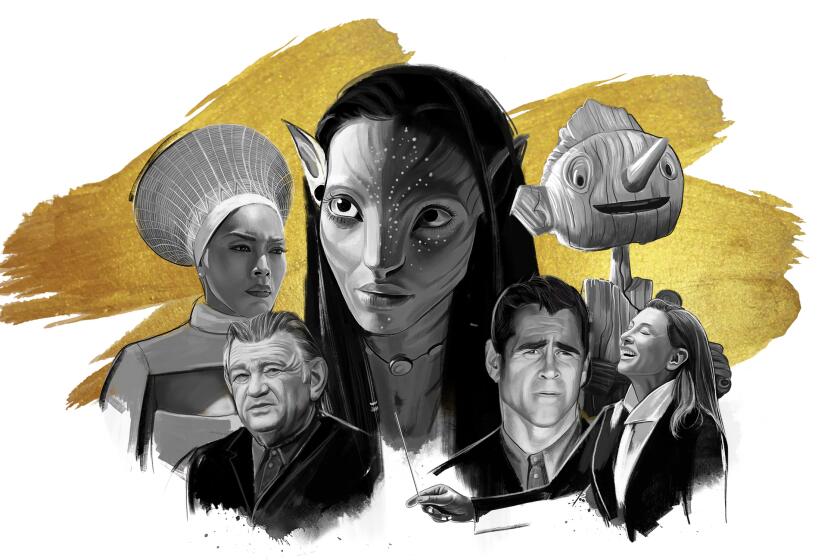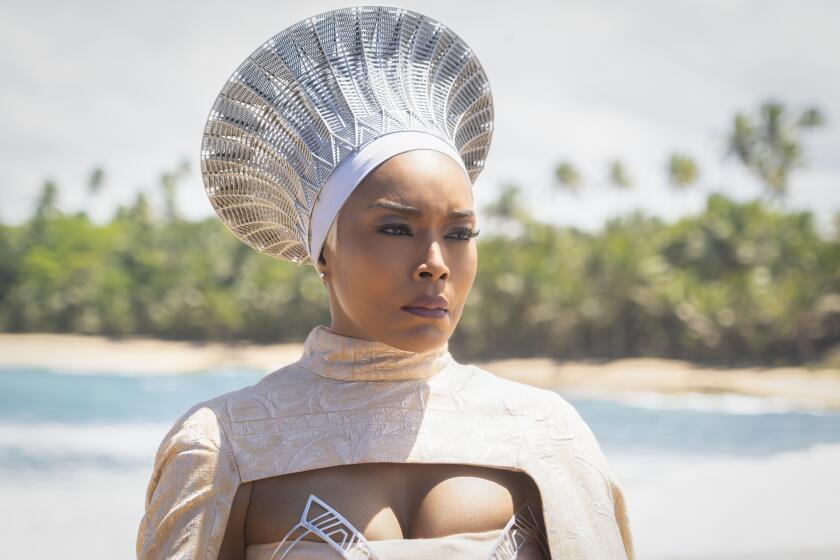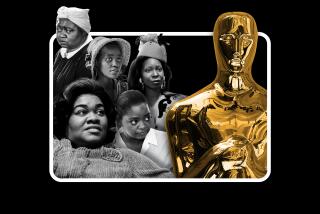Commentary: Yes, the Oscars often snub Black talent. Start paying heed to awards shows that don’t
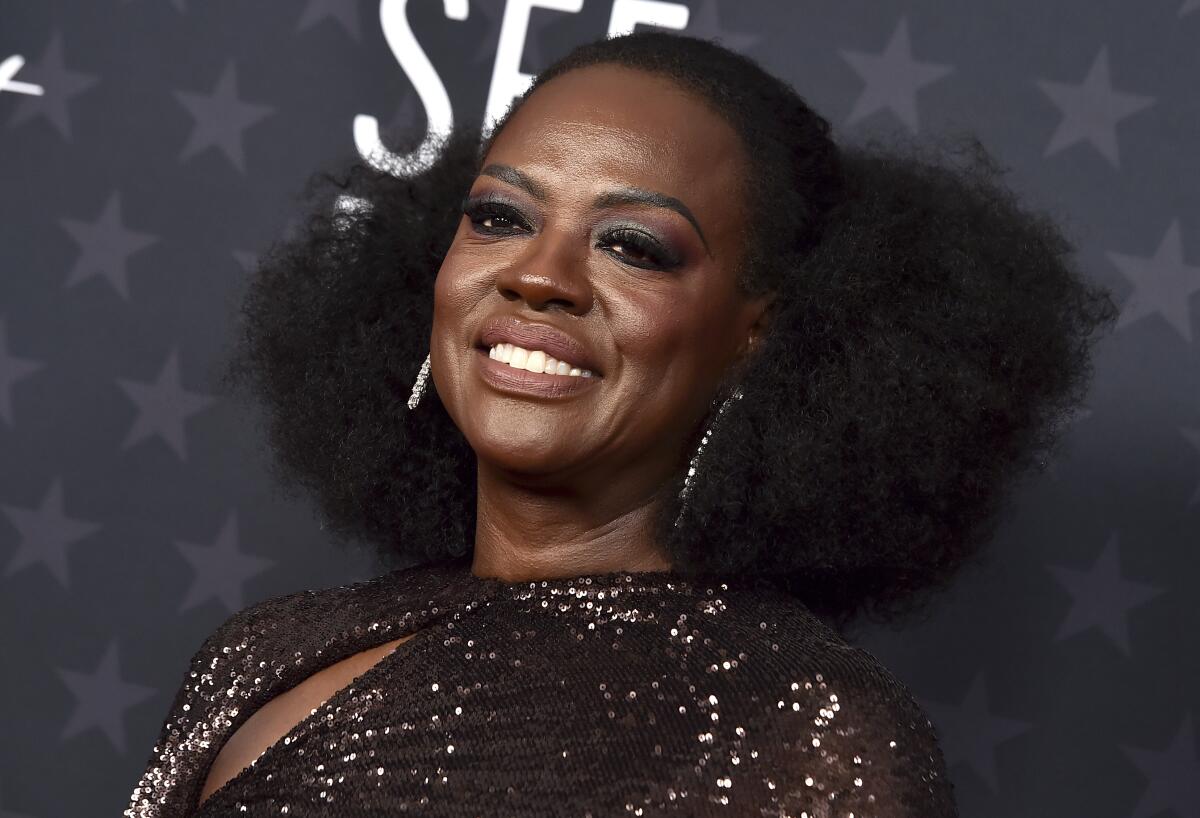
Contrary to a headline published in The Times following last week’s Oscar nominations, the entire awards ecosystem is not failing Black women.
Yes, much of the awards ecosystem is broken and drenched in systemic racism and lack of multicultural awareness. The omission of Viola Davis and Danielle Deadwyler from the lead actress nominees at the Academy Awards is glaring evidence of this. But to say that the entire ecosystem is failing demonstrates either willful ignorance or a refusal to acknowledge the plethora of awards shows and critics groups that have been on the frontlines of supporting Black talent for years.
In fact, there are groups dedicated to lifting up underrepresented voices, and they have strong supporters at all of the studios and among the actors, writers, directors, producers and other craftsmen who are most involved in the awards world. Viewing these awards shows and film critics groups as insignificant is doing the exact same thing as the Academy of Motion Picture Arts and Sciences when it comes to shunning Black talent and other marginalized groups.
It has become exhausting complaining about the motion picture academy and its failure to acknowledge Black talent, particularly women in front of and behind the camera. Nonetheless, I was taught by my grandparents that if you don’t like something, do something about it. So I did — and so have many others. I have spent my 25-year career championing the Black experience on film. Yes, I’m a film critic first, but my Blackness gives me a unique and different perspective.
Here are the nominees for the 2023 Academy Awards in all categories, announced live Tuesday from the Samuel Goldwyn Theatre in Beverly Hills.
One prominent leader in the fight for diversity and inclusion in Hollywood, the Critics Choice Assn.’s Celebration of Black Cinema, was created to provide a platform for Black talent that was too frequently ignored by other awards shows. It hasn’t been hard to notice the exclusion. As a teen, I saw “The Color Purple” receive 11 nominations, only to go home empty-handed on Oscar night. Then Spike Lee was overlooked by the academy for directing “Do the Right Thing.” A Black woman didn’t win the lead actress Oscar until 2002. It’s long been obvious that something wasn’t right.
In 2013 I brought the idea for a Celebration of Black Cinema to the major national critics group I belong to, the Critics Choice Assn., which has always been diverse and inclusive, and which supported the idea immediately and enthusiastically. Initially seen as a one-time event, the idea was revived a few years later and has since blossomed into a big annual event that now honors outstanding achievement in film and television and is broadcast in Los Angeles, New York, Chicago and other major markets from coast to coast.
This awards season, the fifth annual Celebration of Black Cinema & Television honored several Academy Awards contenders, including eventual nominees Angela Bassett and Brian Tyree Henry, and some who are now listed as “snubs,” including “Till” star Deadwyler and “The Woman King” director Gina Prince-Bythewood. Other honorees at the Dec. 5 event, held at the Fairmont Century Plaza Hotel, were Michael B. Jordan, Jonathan Majors, Quinta Brunson, Ayo Edebiri and showbiz legend Berry Gordy.
Too many of the recipients at the Celebration of Black Cinema & Television mentioned that it was the first time they have ever been honored. Does it have an impact on awards season? Of course it does. The ballroom that night was full of guild members and Oscar voters as well as critics.
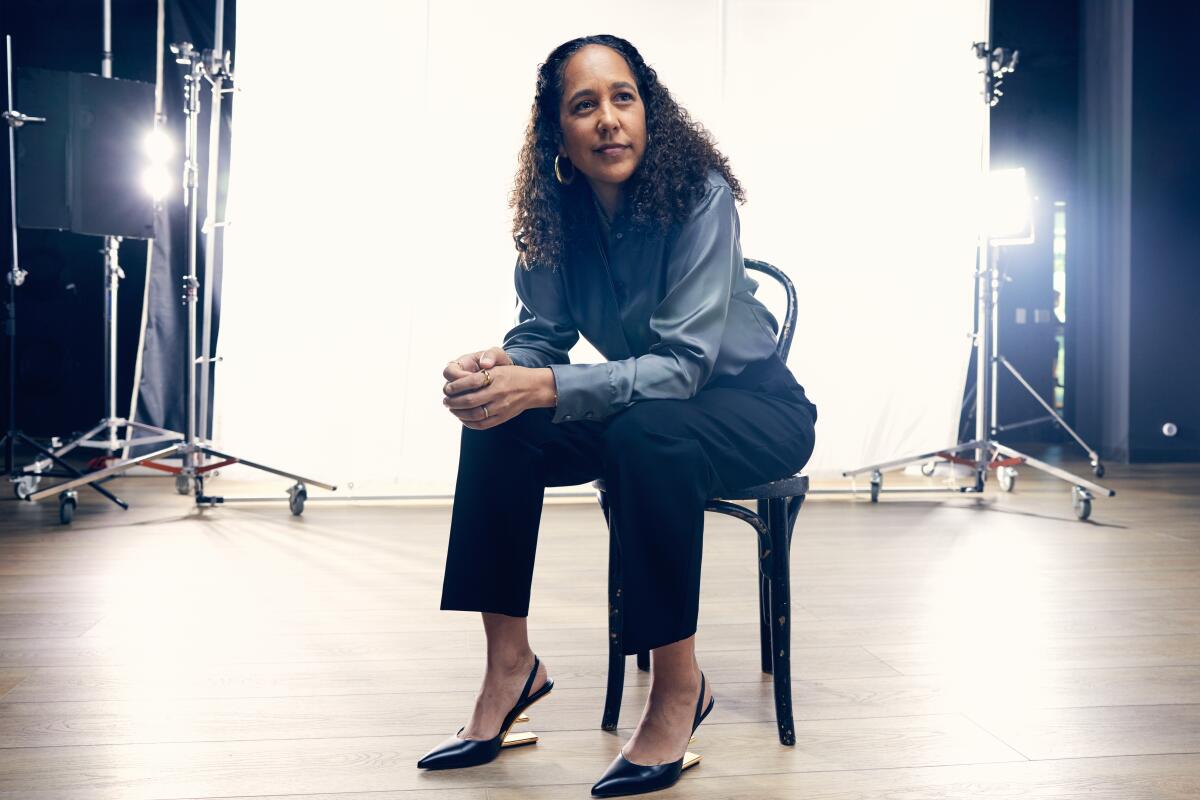
The Critics Choice Assn. now presents a suite of Diversity Celebrations, expanding its inclusion initiative with gala events celebrating Latinos and Asians and Pacific Islanders as well. These are truly joyous affairs for these underrepresented communities that also serve to help level the playing field during awards season.
So what constitutes “major” events that matter in the Hollywood awards ecosystem? Why is one film critics group deemed more important or influential than another? Is the collective perspective of the African American Film Critics Assn. less significant than the New York Film Critics Circle? How are the 600 working film critics and entertainment journalists who make up the Critics Choice Assn. less important than the 100-plus members of the Hollywood Foreign Press Assn. — especially if the now-for-profit operation plans to pay voting members?
Certainly the collective reach of the year-round work of the Critics Choice Assn. membership is magnitudes greater than the Hollywood Foreign Press Assn., yet the latter’s opinions are valued because their brand (Golden Globes) is so well known. But to diminish the importance of awards shows that celebrate diversity is counter to the racial evolution needed to bring more Black women into the awards mix. Yes, the awards voted by the major guilds are often predictive of the Academy Awards, but they also tend to reinforce the status quo.
‘Wakanda Forever,’ ‘Abbott Elementary,’ Beyoncé and Kendrick Lamar led Thursday’s NAACP Image Awards nominations.
Several organizations have been at the forefront of challenging the industry’s persistent underappreciation of Black artists. In 1967 the NAACP created the Image Awards after years of challenging Hollywood’s racist practices. In 1997, Jeff Friday began producing one of the first Black film festivals, the Acapulco Film Festival, to satisfy a need for Black filmmakers to showcase films often not selected by mainstream film festivals. He later began producing the American Black Film Festival Honors. Tim Gordon created the Black Reel Awards in 2000. In 2003 the African American Film Critics Assn., an organization I co-founded, was created out of concern that many film critics groups accepted few or no Black film critics as members. Led by Gil Robertson, in 2009 it established the AAFCA Awards, which annually recognize Black talent and industry executives.
“If we waited for white award shows to embrace Black talent, we’d be waiting forever,” says Wilson Morales, editor of blackfilmandtv.com and a member of the Critics Choice Assn. and the African American Film Critics Assn. “Why not celebrate our own? If we don’t do it, who will? And we are definitely a part of the award ecosystem.”
These Black awards shows could have a much bigger presence in terms of their impact on awards season but are often overlooked by mainstream media outlets, including The Times, the industry’s hometown newspaper. They are typically attended by the industry’s leading Black stars and filmmakers, but The Times seems to believe that virtually all of the awards events that focus on Black films and filmmakers don’t exist.
How can Black talent not be overlooked when the platforms that honor and celebrate them are often ignored or deemed inferior by the media that controls the narrative? Black stories matter. Black filmmakers matter. Black talent matters — and they deserve to hear their names called when the best of the best are honored.
Shawn Edwards is creator and executive producer of the Critics Choice Assn.’s Celebration of Black Cinema and Television, which will air Feb. 4 at 11 a.m. on KTLA. He is a film critic for Fox 4 News (WDAF) in Kansas City, Mo.
More to Read
From the Oscars to the Emmys.
Get the Envelope newsletter for exclusive awards season coverage, behind-the-scenes stories from the Envelope podcast and columnist Glenn Whipp’s must-read analysis.
You may occasionally receive promotional content from the Los Angeles Times.
